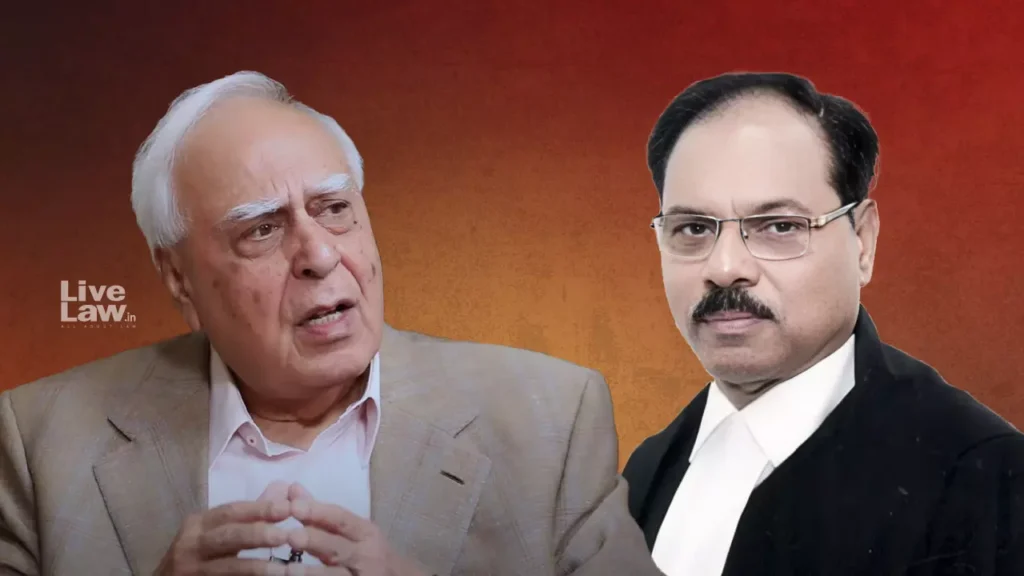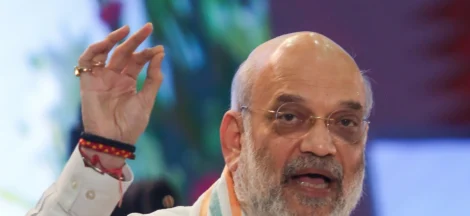A prolonged inaction by Rajya Sabha Chairman Jagdeep Dhankhar regarding the impeachment motion against Justice Shekhar Kumar Yadav has come under sharp criticism from its mover, senior advocate and MP Kapil Sibal.
The notice, submitted on 13 December 2024 with 55 signatories, remains unaddressed six months later—no verification of the signatures has been completed, nor has the motion been admitted into formal proceedings, Sibal highlighted at a press conference on 10 June 2025.
Sibal described the delay as “discrimination” and accused the government of attempting to shield Justice Yadav, who faces allegations of delivering “totally communal” remarks at a December 2024 event organised by the Vishva Hindu Parishad within the Allahabad High Court Bar premises. Videos of his speech, in which he purportedly advocated a “majoritarian” approach and called for the uniform civil code, went viral and sparked widespread controversy.
The controversy intensified in February when the Rajya Sabha secretariat, acting on instructions from Dhankhar, instructed the Supreme Court’s registry not to proceed with an in‑house investigation into the judge, citing the pending parliamentary impeachment motion. This directive reportedly led to the Supreme Court shelving its inquiry, despite the Chief Justice of India having initiated proceedings following adverse remarks by the Allahabad High Court Chief Justice.
Sibal contrasted this with the handling of Justice Yashwant Varma’s case, where no such intervention occurred. Varma is embroiled in a separate controversy involving alleged currency seizures at his residence while he served as a judge in Delhi. By drawing attention to the discrepancy, he implied that Yadav was receiving preferential treatment from the government.
Speaking at the presser, Sibal emphasised the constitutional role of the Rajya Sabha Chairman in impeachment proceedings—only signature verification followed by admission is required to move ahead; yet the process has stalled. “Should verifying signatures take six months?” he asked, expressing concern that such delays erode faith in democratic institutions.
Noting that Justice Yadav is due to retire in April 2026, Sibal warned that further delay—or the rejection of signatories—could shift jurisdiction back to the Supreme Court, allowing Yadav to complete his tenure unscathed. He cautioned that abusing in‑house inquiries or bypassing the formal Judges’ Act could imperil judicial independence.
At the crux of Sibal’s critique is the contention that the Rajya Sabha Secretariat’s letter to the CJI conflated parliamentary impeachment with judiciary‑based inquiry, undermining the Supreme Court’s internal mechanism. He underscored that in‑house inquiry processes and parliamentary impeachment run on distinct constitutional tracks and should not impede one another.
The Supreme Court’s move to initiate its own in‑house inquiry followed a December 2024 social media uproar and a negative report from the Allahabad High Court’s chief justice. However, with Dhankhar’s intervention in February, the Supreme Court paused its investigation, stating that only the Rajya Sabha Chairman or Parliament—and ultimately, the President—had jurisdiction over the matter.
Sibal accused the government of harbouring a motive to protect Justice Yadav, warning that any attempt to remove other judges on grounds of in‑house reports—as opposed to statutory impeachment—would be unconstitutional. He likened it to “a dangerous path” that threatens checks and balances within the system.
The impeachment notice was initiated under the Judges’ Act, 1968 and Article 218 of the Constitution, citing Yadav’s speech as prima facie involving hate speech and communal bias. The motion was backed by opposition heavyweights including Jairam Ramesh, Vivek Tankha, Digvijaya Singh, and John Brittas.
As of mid‑June 2025, 55 of the required 50 signatures remain verified, yet no formal admission of the motion has been announced. Sibal has demanded that Dhankhar expedite the verification process and proceed in accordance with constitutional norms—clarifying that swift action would quell anxieties over institutional bias.



